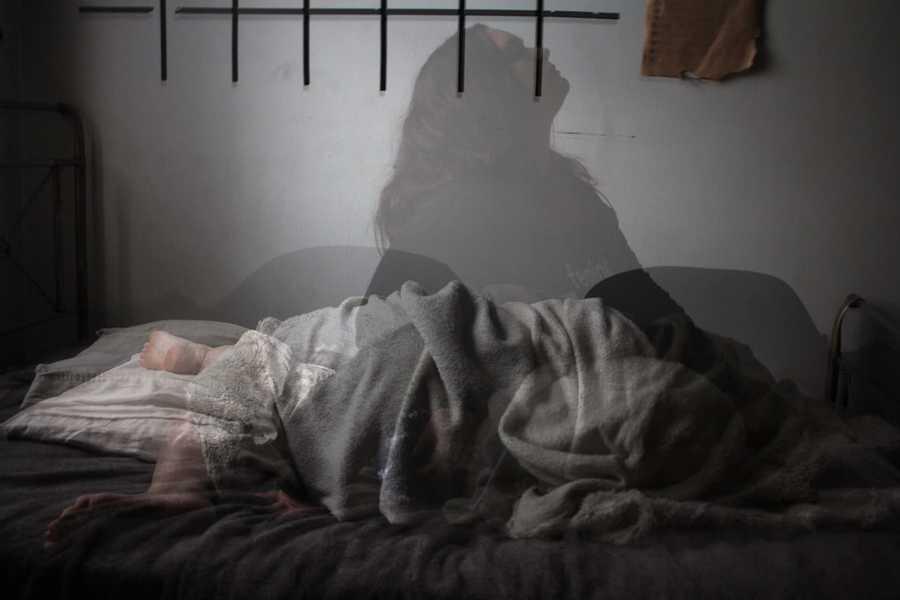Learn more about health with this collection
How to stay motivated
How to create a workout routine
Proper form and technique for home workouts
What Is Dreaming?
Dreaming is one of the most unique and intriguing aspects of sleep. During a normal night’s sleep, it’s typical to spend about two hours dreaming1 . The most intense dreams happen during the rapid eye movement (REM) sleep stage , but distinct types of dreams can occur during any part of the sleep cycle2 .
2
9 reads
Dreams can have imagery that is positive, negative, or outright confusing, likely reflecting a period of immense imagination during sleep3 . Nevertheless, whether in good or bad dreams, experiences from when you’re awake are frequently incorporated into dream content4 .Experts continue to debate about why we dream5 , but considerable evidence points to dreams playing a role in facilitating brain functions like memory and emotional processing. Dreams appear to be an important part of normal, healthy sleep.
2
4 reads
2
3 reads
Do Dreams Impact Sleep Quality?
Dreaming is a normal part of healthy sleep. Good sleep has been connected to better cognitive function and emotional health, and studies have also linked dreams to effective thinking, memory, and emotional processing. In this way, many experts believe dreaming is either a reflection of or a contributor to quality sleep.
However, not all dreams are created equal. Some dreams may have a negative impact on sleep. Bad dreams involve content that is scary, threatening, or traumatic. When a bad dream causes an awakening from sleep, it can be considered a nightmare6 .
2
2 reads
Sleeping habits that's are Bad for Your Health.
Nightmare disorder can be loosely defined as the occurrence of frequent nightmares that interfere with a person’s sleep and/or their mood or thinking during the day7 . People with nightmare disorder may have restless sleep with more awakenings and greater difficulty getting back to sleep. In addition, they may avoid sleep because of their fear of disturbing dreams, increasing their risk of insomnia and sleep deprivation.
2
2 reads
People should talk with their doctor8 if they have nightmares more than once a week, have their sleep disrupted by nightmares, or notice that their daytime mood, thinking, or energy level is affected by nightmares. A doctor can work with them to identify the most likely cause and optimal treatment to reduce these bothersome dreams.
2
2 reads
Do Dreams Impact Sleep Quality?
Dreaming is a normal part of healthy sleep. Good sleep has been connected to better cognitive function and emotional health, and studies have also linked dreams to effective thinking, memory, and emotional processing. In this way, many experts believe dreaming is either a reflection of or a contributor to quality sleep.
However, not all dreams are created equal. Some dreams may have a negative impact on sleep. Bad dreams involve content that is scary, threatening, or traumatic. When a bad dream causes an awakening from sleep, it can be considered a nightmare6 .
2
1 read
- Healthy dreaming may be indicative of quality sleep that facilitates sharper thinking, better mood, and overall health.
- Dreaming may provide for more expansive or inspirational thinking, forming the underlying concept behind the maxim to “follow your dreams.”
- Dreaming may enhance memory consolidation, making it easier to remember important information.
2
1 read
How Can You Stop Bad Dreams And Nightmares?!
If you have frequent bad dreams, start by talking with your doctor who can help determine if you have nightmare disorder. Treatment for nightmare disorder can include behavioral therapy and/or medications.
Improving habits and sleep hygiene can help reduce bad dreams. Some specific tips include:
2
0 reads
- Practice relaxation techniques to minimize stress and anxiety, both of which can provoke nightmares.
- Give yourself time to wind down before bed in a calm and comforting bedroom environment.
- Avoid screen time for an hour or more before bed, and make sure not to watch scary or bothersome content at night.
- Don’t drink alcohol, which affects your REM sleep, in the evening and especially before bed.
- Keep a consistent sleep schedule, even on weekends, to avoid sleep deprivation, which can spur more REM sleep and intense dreaming.
2
0 reads
Does Sleeping Position Affect Dreams and Nightmares?
Many factors influence dreaming, but it is not clearly established that sleeping position is one of those factors.
Some researchers have theorized that dream content may vary based on a person’s sleeping position because physical sensations and pressure applied to the body are different for back, stomach, and side sleepers. One study found that people who sleep on their left side were more likely to have nightmares11 , and another found that vivid dreams, including some nightmares and erotic dreams, were more common in stomach sleepers12 .
2
1 read
A limitation of these studies, though, is that they relied on self-reported data, which is subject to inaccuracies. For example, many people switch their sleeping position during the night without being aware of it. In addition, prior research has shown that sleep position doesn’t affect the amount of time spent in the different sleep stages13 .
Overall, more robust research is needed to establish a link between sleeping position and nightmares.
2
0 reads
IDEAS CURATED BY
Other curated ideas on this topic:
9 ideas
Why Do We Dream? The Role of Dreams and Nightmares
healthline.com
9 ideas
Dreams: Why We Dream & How They Affect Sleep
sleepfoundation.org
3 ideas
Read & Learn
20x Faster
without
deepstash
with
deepstash
with
deepstash
Personalized microlearning
—
100+ Learning Journeys
—
Access to 200,000+ ideas
—
Access to the mobile app
—
Unlimited idea saving
—
—
Unlimited history
—
—
Unlimited listening to ideas
—
—
Downloading & offline access
—
—
Supercharge your mind with one idea per day
Enter your email and spend 1 minute every day to learn something new.
I agree to receive email updates












